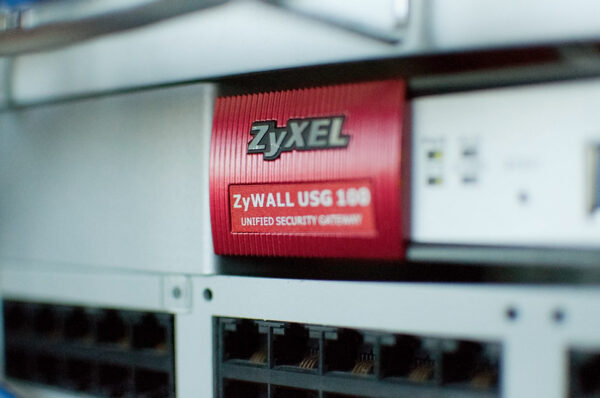Tech News
Zyxel Patched Numerous Security Flaws Across Different Products

Zyxel recently addressed several security vulnerabilities in its firewalls and router devices with a series of security fixes. One of the most critical vulnerabilities identified could lead to OS command injection on Zyxel routers.
Critical OS Command Injection Vulnerability in Zyxel Routers
Zyxel disclosed an OS command injection vulnerability impacting various router models. Known as CVE-2024-7261, this vulnerability affects access points and security router versions, as mentioned in the company’s advisory.
The CVE listing elaborates on the vulnerability and affected devices:
The vulnerability in the CGI program of Zyxel routers could potentially allow an attacker to execute OS commands by sending a crafted cookie to a vulnerable device.
This critical vulnerability received a CVSS score of 9.1, and Zyxel has released security patches for affected devices. Users are advised to update their devices promptly to mitigate the risk.
High-Severity Buffer Overflow Issue Resolved
Another significant vulnerability, CVE-2024-5412, addressed a high-severity buffer overflow issue affecting various Zyxel products. This vulnerability could be exploited by an unauthenticated attacker to trigger a denial of service on the target device.
Zyxel provided a list of affected products and corresponding patched releases in their advisory.
Multiple Security Flaws Fixed in Zyxel Firewalls
In addition to the aforementioned vulnerabilities, Zyxel also patched seven security flaws in multiple firewall versions. These include:
- CVE-2024-6343 (medium; CVSS 4.9): Buffer overflow vulnerability in the CGI program
- CVE-2024-7203 (high; CVSS 7.2): Post-authentication OS command injection
- CVE-2024-42057 (high; CVSS 8.1): OS command injection in the IPSec VPN feature
- CVE-2024-42058 (high; CVSS 7.5): Null pointer dereference vulnerability
- CVE-2024-42059 (high; CVSS 7.2): Post-authentication OS command injection via FTP
- CVE-2024-42060 (high; CVSS 7.2): OS command injection via internal user agreement file
- CVE-2024-42061 (medium; CVSS 6.1): Reflected cross-site scripting (XSS)
These vulnerabilities affected various Zyxel firewall models, and patches have been released for all affected devices. Users are urged to update their devices to stay protected.
Share your thoughts in the comments section below.
-

 Destination8 months ago
Destination8 months agoSingapore Airlines CEO set to join board of Air India, BA News, BA
-

 Breaking News10 months ago
Breaking News10 months agoCroatia to reintroduce compulsory military draft as regional tensions soar
-

 Gadgets3 months ago
Gadgets3 months agoSupernatural Season 16 Revival News, Cast, Plot and Release Date
-

 Tech News12 months ago
Tech News12 months agoBangladeshi police agents accused of selling citizens’ personal information on Telegram
-

 Productivity11 months ago
Productivity11 months agoHow Your Contact Center Can Become A Customer Engagement Center
-

 Gadgets3 weeks ago
Gadgets3 weeks agoFallout Season 2 Potential Release Date, Cast, Plot and News
-

 Breaking News10 months ago
Breaking News10 months agoBangladesh crisis: Refaat Ahmed sworn in as Bangladesh’s new chief justice
-

 Toys12 months ago
Toys12 months ago15 of the Best Trike & Tricycles Mums Recommend






















